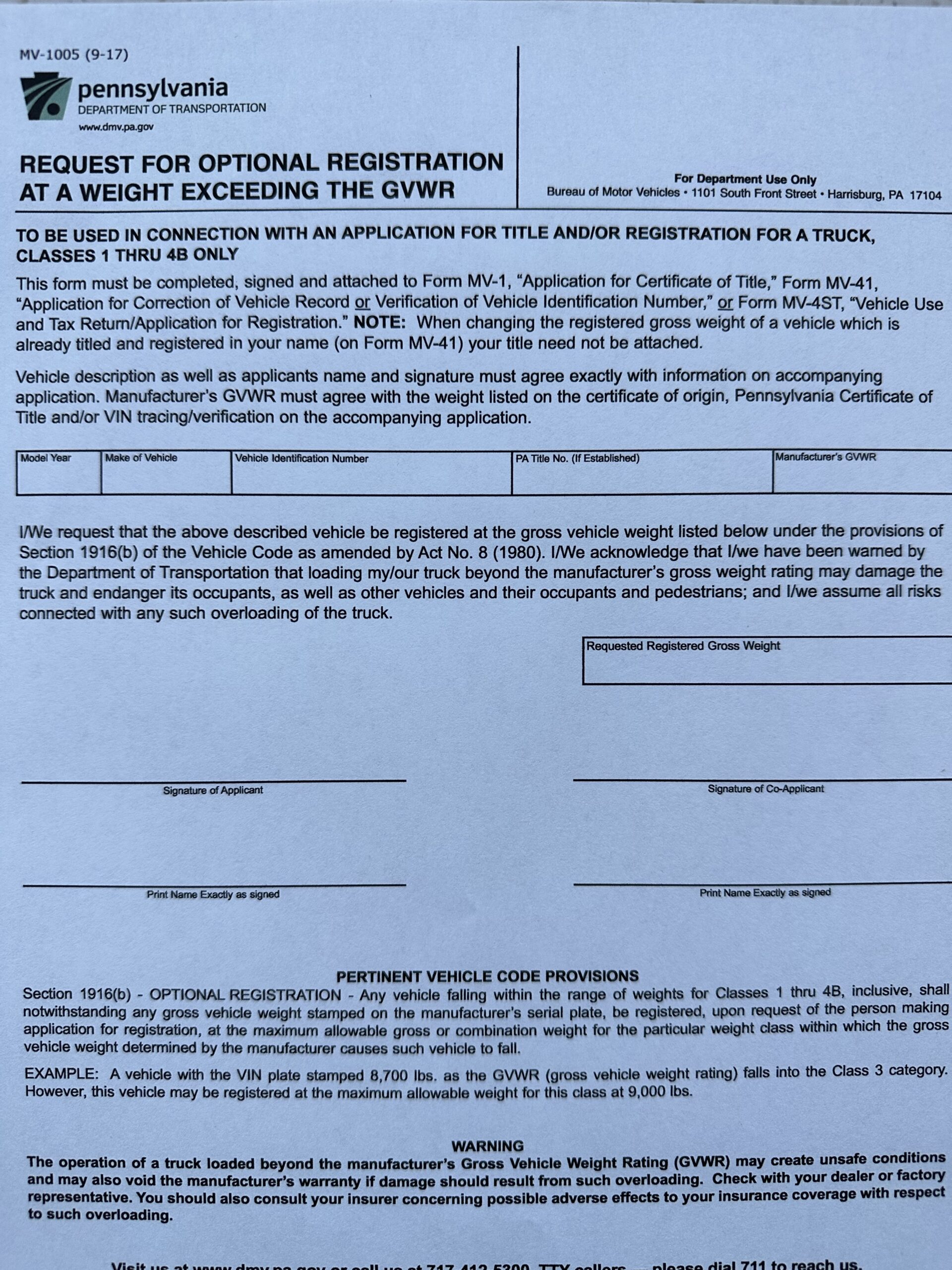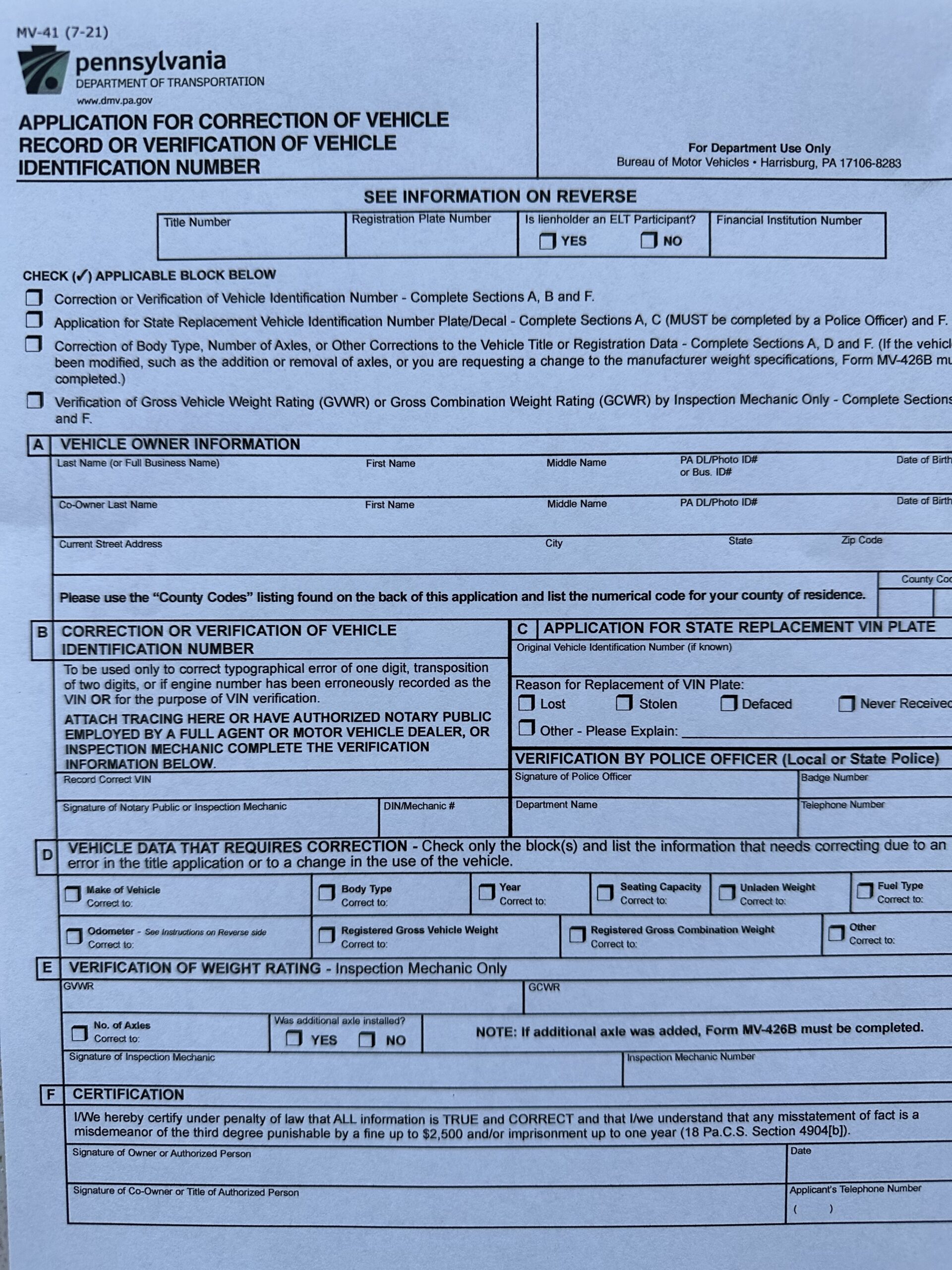Editor’s Note: Gross Vehicle Weight Rating (GVWR) is a carefully determined specification developed by auto manufacturers in conjunction with the federal government to determine a particular vehicle’s legal status. It also indicates the absolute engineering limits of the vehicle in question for all its materials and systems, including the frame, suspension, brakes, and other components. Modifying or loading your vehicle beyond its GVWR can be dangerous, illegal, or both.
My wife Melanie and I researched and looked for the ideal overlanding vehicle for years, attending many Overland Expos, looking online, visiting manufacturers—the whole process.
We ultimately learned we had to completely alter our method for this task and concluded that choosing the proper overlanding setup was like reaching for a knife in the knife drawer in our kitchen. One did not randomly choose the knife with the pretty handle, the shiny one, or the biggest one. First, you had to decide what job you wanted to accomplish with that knife. Was it to cut a loaf of bread, a grapefruit, or a steak? That decision determined the knife you reached for in the drawer; that first decision determined the required tool.
We finally completely reversed the process of choosing our overland vehicle. What we wanted primarily to do with our rig became the key question. The answer was we wanted to find beautiful remote locations. The sought-after vehicle in our mind transitioned from a very large truck with many amenities to a smaller one, and then to even a yet smaller one (ultimately a Toyota Tacoma) that was equipped with 4WD and other equipment to get us to those remote locations where we were less likely to find many other people. Our prior adventures by motorcycle (over 500,000 miles) helped us because we knew how to travel very lightly and with minimal gear.
I serendipitously stumbled on David Soza, then of Tern Overland in Prescott, Arizona. We wanted an extremely light camper to put on a Toyota Tacoma, and that was exactly what he wanted to build. He had been thinking about this for years, so he already had the basic build material and equipment in mind for a very light camper.

David Soza – Tern Overland
It was a meeting of the minds in so many ways, and we were elated to find each other. After the necessary formal paperwork was signed, I bought a Tacoma TRD Off-Road model as it had a larger bed (which was to be replaced by a tray), an electric rear locking differential, and other equipment that suited us. We then turned it completely over to David’s stewardship.
We live in Pennsylvania, and David is in Arizona, so many emails and phone calls ensued. I learned a lot, and so did he, as this was his first complete overlanding build. The camper was installed onto a tray that David built, and with his advice and help, the rig was designed to include 15 gallons of fresh water, an auxiliary 13-gallon fuel tank, a house battery, a fiberglass propane tank (to save weight), repair tools, an electric chainsaw, rear suspension airbags, a winch, a much larger capacity alternator, titanium tire irons, and more. In short, it is a very capable offroad rig but came up just shy of being a rock crawler, which was our objective.
How did this Tacoma turn out? For many places that we go, people often ask, “How did that get here?”—a sign of a successful build if there ever was one. We can cook a meal inside or outside, get a good night’s sleep, and have a place to retreat from foul weather, so we can be in good spirits and continue our journey. For more on our camper, you can watch this video on Expedition Portal’s YouTube channel with David and Scott Brady.
Finally, back to the subject of weight. Fully loaded, our rig weighs 7200 pounds, and the camper itself weighs only 600 pounds which is not at all bad considering how well it is equipped. The frame and suspension are professionally upgraded to handle this mass. But since it is an entirely custom build, how can I prove it to anyone asking how much our camper and the vehicle as a whole legitimately weigh? And, because its mass now exceeds the Tacoma’s original Gross Vehicle Weight Rating (GVWR), the maximum total weight specified for every vehicle by each vehicle manufacturer, how could we maintain its legal registration status?
After much asking around in our home state of Pennsylvania, a friend who is a fire truck mechanic told me there was an “enhanced state inspection” available when a modified vehicle exceeds its GVWR. Two forms are required to obtain a new GVWR in Pennsylvania.
Pennsylvania form MV-1005, entitled “Request For Optional Registration at a Weight Exceeding the GVWR”, has the option to ask for a “Requested Registered Gross Weight”. This newly verified GVWR would be listed on the registration issued to me by the state using the second application, Pennsylvania form MV-41.
Form MV-41, “Application For Correction of Vehicle Record,” includes a section for “Verification of Gross Vehicle Weight Rating (GVWR)”. A certified Pennsylvania state inspection mechanic can sign, with his state-issued Inspection Mechanic Number, that my vehicle could handle the newly requested GVWR, as indicated in form MV-1005.
My mechanic and I have a decades-long history of jointly handling repairs and maintenance for my vehicles, and I have a lot of experience in the vehicle maintenance business. My mechanic also had seen the build pictures of our camper as it progressed, and he knew our camper was built to a very capable and high standard. He had no problems signing the MV-41.
We now have a state-issued registration for our Tacoma that lists a GVWR that is within the actual weight of our camper/vehicle combo.
Will this Pennsylvania-issued paperwork satisfy a federal Department of Transportation (DOT) official asking about the weight of our Tacoma? This remains to be seen. It seems private individuals with campers are rarely asked about the GVWR of their vehicles, while commercial vehicles tend to be stopped more frequently. This can vary by location, and the state or country where you register your vehicle may have completely different laws, so I encourage you to do some research where you live, as there may be a way for you to alter the GVWR of your vehicle on your officially issued registration.
I’m glad we did.
Our No Compromise Clause: We do not accept advertorial content or allow advertising to influence our coverage, and our contributors are guaranteed editorial independence. Overland International may earn a small commission from affiliate links included in this article. We appreciate your support.




